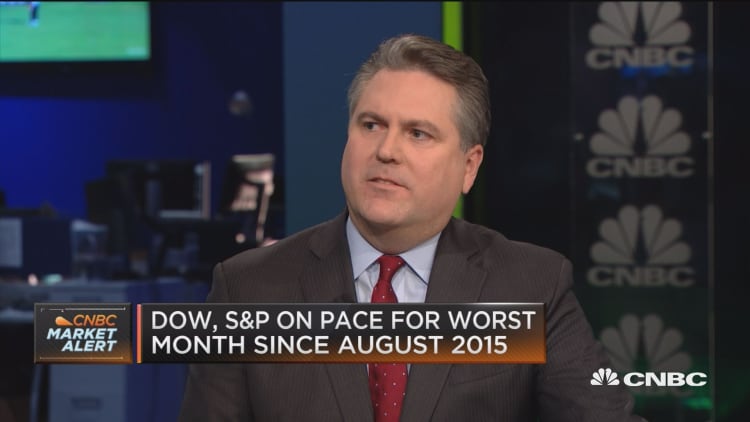
While a lot of attention has been paid to retail volatility products that contributed to the recent sell-off, those securities are "just the tip of the iceberg," Eddie Perkin, chief equity investment officer at Eaton Vance, told CNBC on Tuesday.
Last week, bets against market volatility imploded and helped fuel the market correction. The most high-profile crash was that of the VelocityShares Daily Inverse VIX Short-Term, which trades under the ticker symbol XIV. Credit Suisse, which issues the XIV, then said it would close the fund.
However, "the institutional money behind those same, similar strategies is what's really driving the market," Perkin said in an interview with "Power Lunch."
He's referring to minimum volatility and risk parity funds that are used by institutional investors, like hedge funds. Essentially those investors try to define every asset class through how volatile it is, and when volatility increases, they reduce their exposure to those asset classes that appear to have too much volatility.
The term volatility refers to the amount of uncertainty in the size (and direction) of changes in a market and is typically measured by the deviation of returns.
Perkin said there are hundreds of billions of dollars behind these types of strategies.
"It becomes a self-fulfilling prophecy where the more volatility there is, the more you have to sell and that drives further volatility," he explained.
Perkin added, "The computers are running the show and there's not that much money that is price sensitive, fundamentally based where there is an active decision-maker, human being saying, 'I'm stepping in to buy.'"
He doesn't think the products were entirely behind the recent sell-off, however. Rising interest rates were the main factor, fueled by the volatility plays and high valuations, he said.
"When stock prices fall for no good reason that's the buying opportunity" for long-term investors, he said.


